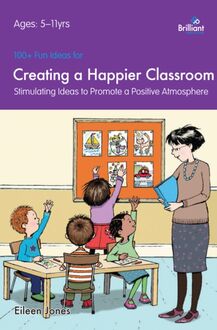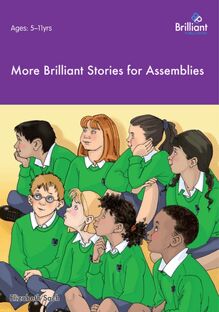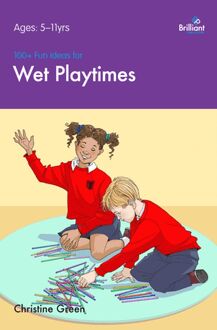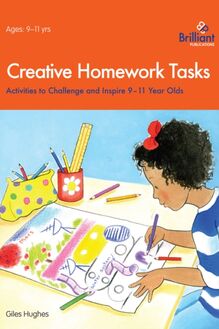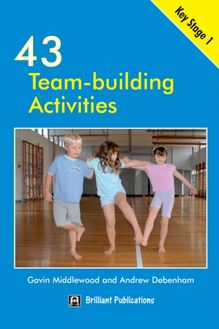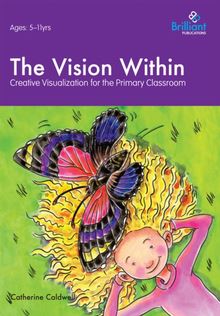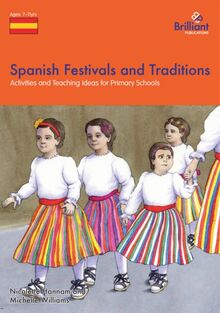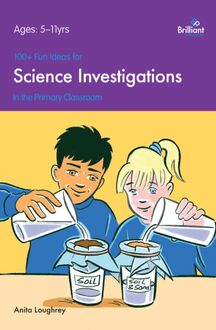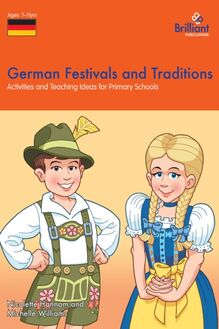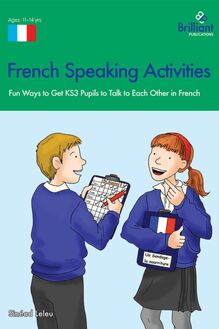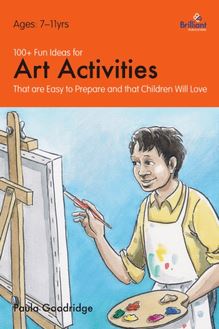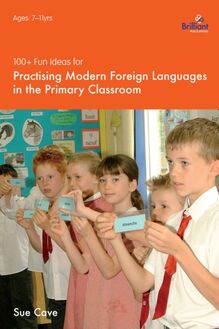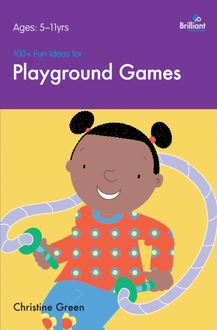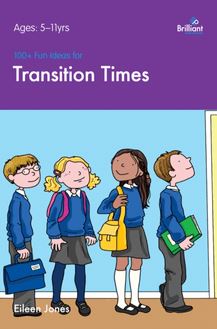-
 Univers
Univers
-
 Ebooks
Ebooks
-
 Livres audio
Livres audio
-
 Presse
Presse
-
 Podcasts
Podcasts
-
 BD
BD
-
 Documents
Documents
-
- Cours
- Révisions
- Ressources pédagogiques
- Sciences de l’éducation
- Manuels scolaires
- Langues
- Travaux de classe
- Annales de BEP
- Etudes supérieures
- Maternelle et primaire
- Fiches de lecture
- Orientation scolaire
- Méthodologie
- Corrigés de devoir
- Annales d’examens et concours
- Annales du bac
- Annales du brevet
- Rapports de stage
La lecture à portée de main
Vous pourrez modifier la taille du texte de cet ouvrage
Découvre YouScribe en t'inscrivant gratuitement
Je m'inscrisDécouvre YouScribe en t'inscrivant gratuitement
Je m'inscrisEn savoir plus
Vous pourrez modifier la taille du texte de cet ouvrage
En savoir plus

Description
Informations
| Publié par | Andrews UK |
| Date de parution | 31 octobre 2012 |
| Nombre de lectures | 0 |
| EAN13 | 9780857475503 |
| Langue | English |
| Poids de l'ouvrage | 2 Mo |
Informations légales : prix de location à la page 0,0650€. Cette information est donnée uniquement à titre indicatif conformément à la législation en vigueur.
Extrait
Title page
Creative Homework Tasks
Activities to Challenge and Inspire 7-9 Year Olds
Giles Hughes
Publisher Information
Originally published by Brilliant Publications
Unit 10,
Sparrow Hall Farm,
Edlesborough,
Dunstable,
Bedfordshire,
LU6 2ES
Website: www.brilliantpublications.co.uk
General information enquiries:
Tel: 01525 222292
The name ‘Brilliant Publications’ and the logo are registered trade marks.
Written by Giles Hughes
Illustrated by Frank Endersby
Cover illustration by Frank Endersby
© 2010 Giles Hughes (text); Brilliant Publications (design and layout)
First published 2010
2012 digital version by Andrews UK Limited
www.andrewsuk.com
The right of Giles Hughes to be identified as the author of this work has been asserted by himself in accordance with the Copyright, Design and Patents Act 1988.
Certain sections are printable/photocopiable. These sections have the phrase ‘This section may be printed/photocopied for use by the purchasing institution only’ at the top. They may be printed/photocopied by the purchasing institution or individual teachers for classroom use only, without consent from the publisher and without declaration to the Publishers Licensing Society. The material in this book may not be reproduced in any other form or for any other purpose without the prior permission of the publisher.
Introduction
It’s a Friday afternoon and in schools across the country audible groans of disappointment filter from each classroom as homework assignments are given out.
On Sunday evenings tensions rise in family homes as parents and their children begin negotiations, threats, sulks and bribery over uncompleted homework.
Back at school on the following Monday mornings, teachers begin to chase up the late and missing homework tasks. Once again, the nation’s dogs have developed a taste for paper, homework booklets have mysteriously vanished into thin air and thousands of homework sheets have been left on the back seats of cars and buses.
Does this sound all too familiar? Teachers, pupils and parents seem to accept these rituals as an unavoidable part of school life.
In writing these Creative Homework Tasks I decided to try to change this pattern of behaviour. As a busy teacher, and parent, I felt homework was an extra source of stress I could do without and set out to find a solution that would suit everyone.
My first undertaking was to look at a variety of homework schemes and assess the quality and variety of homework assignments. The vast majority of homework tasks were numeracy and literacy based, the sheets themselves tended to look similar, generally being formal in layout and lacking pictures, diagrams and illustrations.
It was obvious that these tasks were completely inappropriate for the largest group of non-participants, most of whom were boys. I invited groups of children to carry out a ‘preferred learning style’ questionnaire. The results indicated that the majority of children who were reluctant to carry out homework tasks were kinaesthetic learners and visual learners.
When asked to list things that they were interested in outside of school and their favourite school lessons, football, art, science fiction, dinosaurs, sport, computer games and crafts all figured highly on their lists!
Knowing what the children were interested in and how they preferred to learn gave me something tangible to go on - my job was to now go out and plan a series of new homework tasks that would appeal directly to them.
The first creative homework task I came up with was one where they had to invent their own ‘James Bond’ style watch (see ‘ Escape ’). The watch design had to incorporate three gadgets which their ‘hero’ uses to defeat or escape from an enemy.
Children love secrets and an element of mystery, so in order to attract their interest I staged this first task. On Monday morning I sat with my back to the class working at my desk before calling the register, apparently engrossed in what I was doing. Within moments I was surrounded by a group of inquisitive children eager to see what I was up to. Quickly I covered my work, giving just enough time for them to see I had been busy drawing something. Despite constant pestering I refused to tell them what my sketch was of. I continued this charade during the day, making sure that news and occasional glimpses of my ‘Design a Gadget Watch’ homework sheet slowly filtered around the class. The design of the sheet was highly visual, keeping text down to a minimum.
On Friday I introduced the task to the children, proudly showing my watch design and explaining its functions. To my amazement two of the boys called out, ‘we’ve already done ours, we sneaked in at playtime and saw it on your desk!’ These two individuals, who hadn’t managed a single piece of homework between them all year, now produced finished watch designs and stories from their bags! That week every child in the class completed their homework on time and I realized I was onto a winner.
Over the next year, the number of children participating in homework rose as they worked their way through the new creative tasks. In addition, feedback from parents was extremely positive, many noticing a positive change in their children’s attitude towards homework. In many cases it seemed the format and content of these new homework tasks was putting an end to the confrontation, arguments and bribery the parents previously resorted to in order to ensure homework was done.
Indeed, one boy’s homework had improved beyond recognition. His handwriting, spelling, grammar, design skills and drawing were a revelation. Alas, it was too good to be true, the new tasks had proved to be a temptation for his father who had completed them himself! The boy ended up taking two copies home so that they could work together, even then his father insisted on handing his homework in too!
Once a new ethos was established in class I started to introduce tasks that appealed to a wider audience. My first tasks were developed with underachieving, kinaesthetic boys in mind. I gambled that if I kept the tasks visually stimulating and creative in nature these children would still retain their new-found enthusiasm. It was also important to start introducing a wider range of curriculum areas, particularly numeracy and literacy while doing away with lists of sums, lengthy explanations and mountains of text. Devising tasks that get children to think creatively, or giving traditional tasks a creative twist, is the key.
The tasks you will find in this book have been trialled in a number of schools and are the culmination of many months of research, feedback and editing. They have been designed so that they can be given out with little or no input from the teacher if need be. In my experience a little enthusiasm from the teacher goes a long way. There are extensive teacher notes for each task - giving examples of extension activities, relevant websites, fun ways of accessing the tasks and solutions to the problems!
There are some great ideas in the book that all children will love - many seem too good to waste on homework! Why not start them off at school or dip into the teacher’s notes to find an extension exercise to do at home?
Above all, enjoy the tasks - homework no longer needs to be a grind!
Literacy
Duster Slippers for Cats!
Teacher’s Notes
The task for the children is to write and illustrate an advert that will persuade people to buy ‘Duster Slippers’ for their cats. The children will need to exaggerate any positive features they can think of for this invention.
Encourage the children to use the persuasive strategies listed on the sheet. Using them will make their advert more effective.
For example, use questions such as: Is dust a problem in your house? Could you do with more help with the housework? Is it about time that your pet started to pull its weight?
Or use instructions or promise and exaggerations such as: You need Duster Slippers for Cats! Try Duster Slippers for Cats today! (instruction) This amazing new product will put an end to all your dusting worries! See what a difference they make - satisfaction guaranteed (Promise)
You could give customers a warning/important advice, with: Don’t miss out on the opportunity of a lifetime (advice/warning)
And finally, use expert opinion to endorse the product: ‘I bought Duster Slippers for Cats for our cats Tiddles and Diddles, and Victoria hasn’t lifted a duster since.’ (David Beckham - International footballer).
Task Sheet
This section may be printed/photocopied for use by the purchasing institution only
Is this a useless invention?
Do you think that these slippers would help with the housework?
Can you work out why they are such a useless invention?
Your task is to write and illustrate an advert that will persuade people to buy ‘Duster Slippers’ for their cats.
Try using the following strategies to make your advert more persuasive:
Exaggerate:
‘This new product will change your life.’
Promise:
‘I give my word that …’
‘Guaranteed to … ’
Instruct:
‘Buy a set today!’
Question:
‘Do you want a filthy, dusty house?’
Invitation:
‘Try using Duster Slippers on your moggy.’
Advice/Warning:
‘Without Duster Slippers your house will be covered in dust!’
Expert Opinion:
‘9 out of 10 vets recommend this product.’
Word Squares
Teacher’s Notes
Explain what a word square is and tell the children that their task is to complete the following and then to make some of the
-
 Univers
Univers
-
 Ebooks
Ebooks
-
 Livres audio
Livres audio
-
 Presse
Presse
-
 Podcasts
Podcasts
-
 BD
BD
-
 Documents
Documents
-
Jeunesse
-
Littérature
-
Ressources professionnelles
-
Santé et bien-être
-
Savoirs
-
Education
-
Loisirs et hobbies
-
Art, musique et cinéma
-
Actualité et débat de société
-
Jeunesse
-
Littérature
-
Ressources professionnelles
-
Santé et bien-être
-
Savoirs
-
Education
-
Loisirs et hobbies
-
Art, musique et cinéma
-
Actualité et débat de société
-
Actualités
-
Lifestyle
-
Presse jeunesse
-
Presse professionnelle
-
Pratique
-
Presse sportive
-
Presse internationale
-
Culture & Médias
-
Action et Aventures
-
Science-fiction et Fantasy
-
Société
-
Jeunesse
-
Littérature
-
Ressources professionnelles
-
Santé et bien-être
-
Savoirs
-
Education
-
Loisirs et hobbies
-
Art, musique et cinéma
-
Actualité et débat de société
- Cours
- Révisions
- Ressources pédagogiques
- Sciences de l’éducation
- Manuels scolaires
- Langues
- Travaux de classe
- Annales de BEP
- Etudes supérieures
- Maternelle et primaire
- Fiches de lecture
- Orientation scolaire
- Méthodologie
- Corrigés de devoir
- Annales d’examens et concours
- Annales du bac
- Annales du brevet
- Rapports de stage
